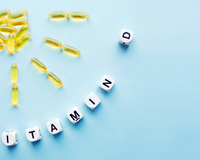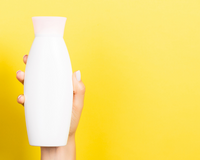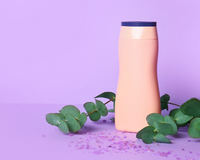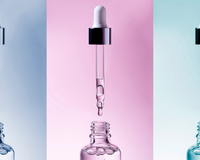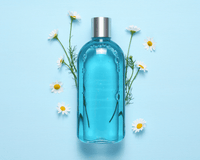What The Best Skin Care Product for Acne
If we say what the best skin care product for acne, we get the answer of salicylic acid. Acne control, depending on the severity of your disease, might be tough, but it is not impossible. A few substances, including salicylic acid, benzoyl peroxide, and Adapalene, are recommended by dermatologists. Despite differences in chemical makeup, each component can assist you in achieving your acne-free skincare objectives.
Salicylic Acid
Salicylic acid exfoliates the stratum corneum (the skin's outer layer) and enters pores to eliminate sebum. This helps avoid clogging of the pores and can help remove any blockages that have already occurred. Salicylic acid is a beta hydroxy acid, which means it acts as a chemical exfoliant. Use with caution if you have sensitive skin. It breaks the connections that keep dull, dead skin cells on the skin's surface, allowing for gentle exfoliation and the reveal of smoother, brighter skin beneath. Salicylic acid isn't only for your face; it's also a useful component in shampoos for dry scalp and dandruff.
Peroxybenzoyl Peroxide
Benzoyl peroxide is beneficial in the treatment of acne not only because it destroys acne-causing bacteria, but also because it prevents and clears blocked pores. Micronized formulations should be avoided since they produce less irritation and have a longer shelf life.
Because benzoyl peroxide can bleach your clothing and towels, it's better to choose shower cleansers that include this component.
Adapalene
Acne may potentially benefit from the use of an over-the-counter retinoid. Retinoids control skin cell turnover, which keeps pores clear of oil and irritation. Adapalene was the first over-the-counter retinoid, and it is available in 0.1 percent and 0.3 percent concentrations.
Non-comedogenic skincare products will not clog pores and should be purchased if you have acne-prone skin. Tam recommends cleaning it twice a day with a mild face cleanser. Harsh cleansers might remove too much oil while also overstimulating your sebaceous glands. This may make you feel wonderful right now, but it might make you obese in the long run. After that, use a non-comedogenic moisturizer and sunscreen (in the morning).
When utilizing an acne treatment such as benzoyl peroxide or a retinoid, only a little pea-sized quantity is required for your entire face. Because these treatments are potent, you should only take them once a day.
If over-the-counter treatments aren't working for you, talk to a dermatologist or general practitioner about alternative treatment options, including prescription drugs.
What is Acne?
Acne is a common skin disease that causes blockage of hair follicles and sebaceous glands (oil-producing glands beneath the skin).
When the body produces a lot of sebum (the oil that keeps our skin moisturized), dead skin cells can get stuck inside the pores and develop white or blackheads. Bacteria from the skin are also trapped in the pore, resulting in inflammatory pimples. It most commonly affects the face, forehead, chest, upper back, and shoulders. Acne affects people of all ages, although it is most frequent among teens.
Acne is a skin disorder that can affect adults in their 30s, 40s, and beyond, yet it affects 85 percent of adolescents. A typical pimple consists of tiny blisters with a red or yellow tip that may or may not be inflamed, black spots called open comedones, small white lumps called closed comedones, and occasionally bigger cyst-like formations. Hormones, medicines, and carbohydrate-rich diets can all cause or worsen acne.
Acne Factors
Before we say the best skincare product for acne, we need to look at why acne occurs. Your skin pores become clogged and create an ideal breeding ground for bacteria in the pores that cause irritation over time. Your acne is caused by a variety of factors, including medications.
- A kind of hormone is overactive (androgens)
- Excess oil production in the skin
- Oil and dead skin cells block pores
- Irritation, pimple tightening
- Pollution is an issue (prepares the environment for the formation of bacteria)
- Acne is worse by smoking.
- Irritation caused by wetness or exposure to the sun
- Hormone Level Changes adolescence period menstrual cycle
- Pregnancy
- Contraception tablets
- Stress
Changes in the Skin
Changes in hormones, particularly during puberty, can also produce changes in people's skin. The amount of oil generated by the skin rises as a result of this hormonal action. The increased activity of the sebaceous glands leads cells to collect and clog in the portions of these glands that open to the outside, resulting in the creation of acne in the first stage.
Then, when bacteria multiply, an inflammatory state develops. This image results in black and white patches, pus-filled swellings, red spots, and even the creation of hazelnut-sized cystic formations. Acne rashes appear in greasy regions of the body such as the face, back, shoulders, and chest.
Cosmetic products and excessive cosmetic usage are two of the most common causes of post-adolescent acne. Some cosmetic products cause acne months after they are applied to your skin. When choosing cosmetic goods, it is important to thoroughly investigate the acne-causing potentials.
Acne can be caused by stress alone. Furthermore, even while under extreme stress, a person's nails might unintentionally scratch a little pimple or roughness on his skin and transform it into a wound. This displays an image that is resistant to acne treatment and leaves scars and stains. When faced with such a circumstance, obtaining psychological support as well as acne therapy is critical to the treatment's effectiveness.
Acne
Which is the best skin care product for acne, we determine according to the type of acne. Acne is caused by the negative effects of various drug treatments. You take long-term cortisone treatments by mouth at the start of acne-causing medications. Athletes' usage of steroids, certain medications, and long-term use of B vitamins can all cause or exacerbate acne. As a result, individuals who see a dermatologist with acne should notify their doctor about the medications and supplements they are taking.
There is no established link between nutrition and acne. Recent research, however, suggests that eating processed carbs worsens acne. As a result, it is essential to maintain a nutritious diet.
Acne development is influenced by the structure of the skin. Studies show that adult acne is more common in people with oily skin and larger pores. Adult acne is classified as either 'adolescent acne that persists into maturity' or 'adolescent acne'. Men are more prone to teenage acne, while women are more prone to adult acne. Adult acne is prone to irritation and scarring.


